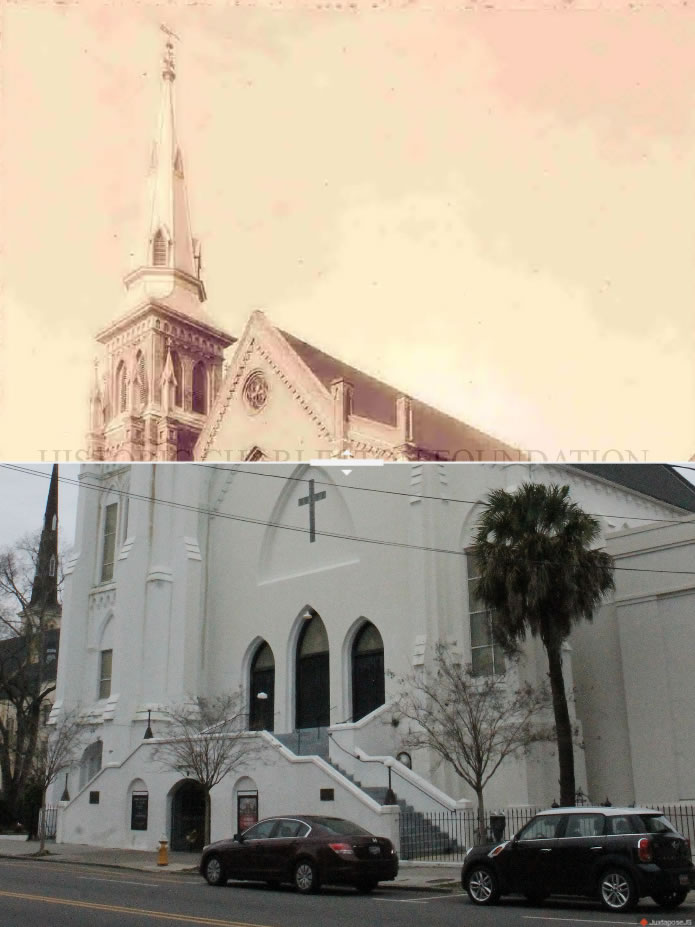Revisiting Roof: Victims and citizens speak out on Emanuel AME attack
May 24, 2019
In 2015, nine parishioners lives were taken at the expense of a gun-wielding white supremacist at Emanuel AME Church in Charleston, SC. Today, the city of Charleston, SC is facing repercussions from not only this event but also from the long-lasting institutions that had fueled the attack.
“I do believe people subconsciously put me into a category just because I am a young black man,” Chris Singleton, Chicago Cubs prospect and son of Emanuel Victim Sharonda Coleman-Singleton said.
He described his mother as, “a very hard worker who we could always depend on.”
Emanuel AME has a rich history, including the fact that it was the first African Methodist Episcopal Church in the south, and was a hotspot for Civil Rights activists. The church is located on Calhoun Street, and nestled only a block away is a memorial to Calhoun, the Vice-President of the Confederacy. These facts, combined with the attack in 2015, have manifested Emanuel AME as a contradiction between love and hate.
Singleton, for one, does believe that there is still a generous amount of adversity the country has to move past regarding the elimination of racism.
“Your teachings both good and bad are going to be the reason this nation heads in the right direction, or the reason that hatred spreads exponentially,” he said.
In fact, Singleton believes Sundays are the most segregated day of the week.
“I am making an effort to change this,” he said. “I now attend Awaken Church which has a decent diverse group, but still needs to grow in this area.”
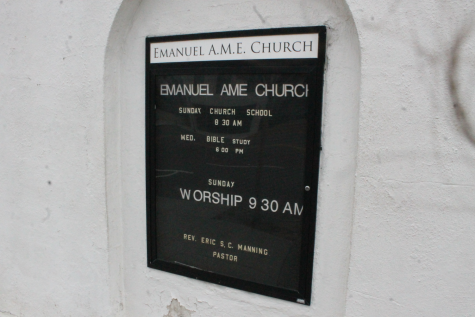
To Ronald Freeman, a New Jersey artist, the attack was also an impactful event in his life. He was half-asleep and listening to the radio when he heard the news, and was convinced he was hearing things. When he woke up and truly learned about the shooting, he knew he had to do something.
“I was hurt, angry and still confused as to why someone would have this level of hatred,” Freeman said. “I did not know how, but I knew I had to do something.”
“I knew that I wanted to draw on wood,” he said. “I thought of different ways to honor all of them collectively.”
In 2016, Freeman finally decided on what he would create to honor the victims.
“It just struck me to assemble a cross.”
It took Freeman over a year to sit down and start working on the cross.
“The painful part was doing the research on each person and learning a little bit about them and learning more about the shooting.”
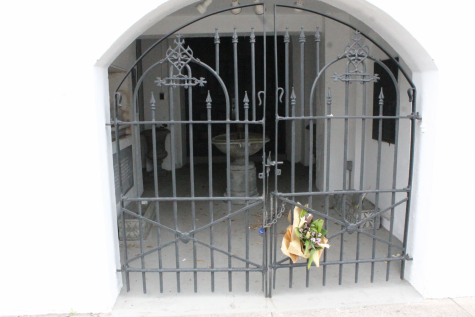
On the shooting, Freeman was especially shocked by Roof’s attitude towards his victims, like conversing with them before shooting them.
“He prayed with them and during the benediction, he stood up and started shooting,” Freeman said. “All because of the color of skin!”
However, the attack did not change Freeman’s perspective on racism in the United States today, acknowledging racism as a part of our society that will always be present in some way.
“Prior to this event, I would always believe that the church is a safe haven,” he said. “What is very disturbing is the brazenness of it all.”
Furthermore, Freeman does not think an attack like this can be prevented in the future.
“Perhaps stricter gun laws, but even that can’t stop hatred.”
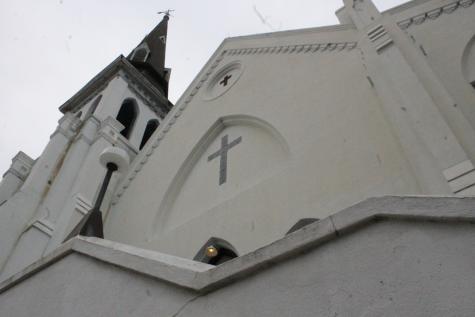
For Rev. Risher, daughter of Ethel Lee Lance, a victim of the attack, the shooting affects her daily life.
“To initially receive a phone call that something was happening at the church, set off feelings of acute anxiousness and doom.”
At the time of the shooting, Risher was living in Dallas, TX, waiting to receive an official notice of her mother’s death.
She said, “From watching the news, I knew in the pit of my soul she and the others were gone.”
After the shooting, Risher resigned from her job as a Trauma Chaplin and moved to NC. She began to travel around the country, discussing issues like racism, gun control, and more in a variety of settings.
“For the last almost 4 years, I have traveled across this country talking about, racism, gun violence prevention, and forgiveness, in colleges, universities, church and judiciary committees, advocating for common sense gun laws,” she said. “I don’t have a regular 9-5 job.”
However, none of this comes without an emotional toll. Risher copes with the effects of the shooting by relying on her faith.
“I use spiritual disciplines such as prayer, listening to music, and reading scriptures,” she said. “I have learned to accept support from my children and friends and not to isolate myself.”
Although Risher believes that the people of Charleston are more aware of racial disparity, it’s back to business as usual. One example of a step to address the problem she cited was when the Charleston City Council voted to apologize for its centuries of support of slavery.
She said, “That was a major step towards facing some of racism the citizens of Charleston have endured.”
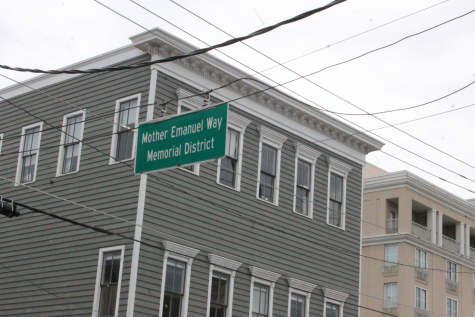
Another issue in the City of Charleston that she pointed out is the lack of affordable housing.
“Black people and other marginalized groups of people can no longer afford to live in the city,” she said. “Affordable housing is very much needed in the City of Charleston.”
Risher also agrees that the removal of Confederate flags and statues marks some signs of progress. The Confederate flag was removed from the South State House in Colombia, SC, on her birthday, July 10.
“I was so proud and so sad, that it took the brutal deaths of 9 people in a church, to make this happen,” she said. “The White Symbols of racism continues to perpetuate the White Supremacy movement in this country that breed hate, and intolerance.”
Risher believes that the components that breed this hatred are lack of self-love, greed, and privilege.
She said, “If a person does not love himself, he will not value another’s life.”
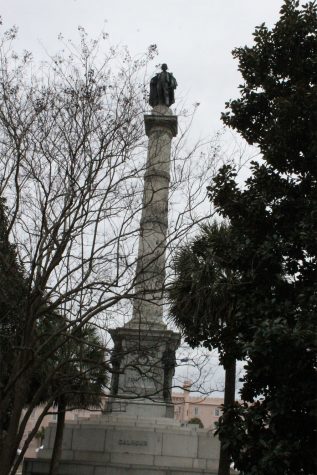
“The White Supremacy movement has millions of followers, who believe certain people should not be allowed to live the American dream,” she said. “I believe most white Americans believe their way of making money and privilege is being attacked.”
To change this, though, Risher thinks it will take a while for reconciliation.
“Racism runs deep in our history,” she said. “The problem will not going away, but because people of color refuse to stay silent, and stand up to such treatment, change has happened and will continue to happen, bit by bit.”
While the attack may have put Emanuel AME on the map for the wrong reason, the reason why it remains relevant today is because of love; not because of hate.
On Dylann Roof, the attacker at Emanuel, Singleton said, “I would say I still forgive him, I would ask him if he is a believer, and lastly I would ask him who taught him to hate that way…”
“By doing this, we would hopefully get to the root of the evil and stop future things like this from happening.”
